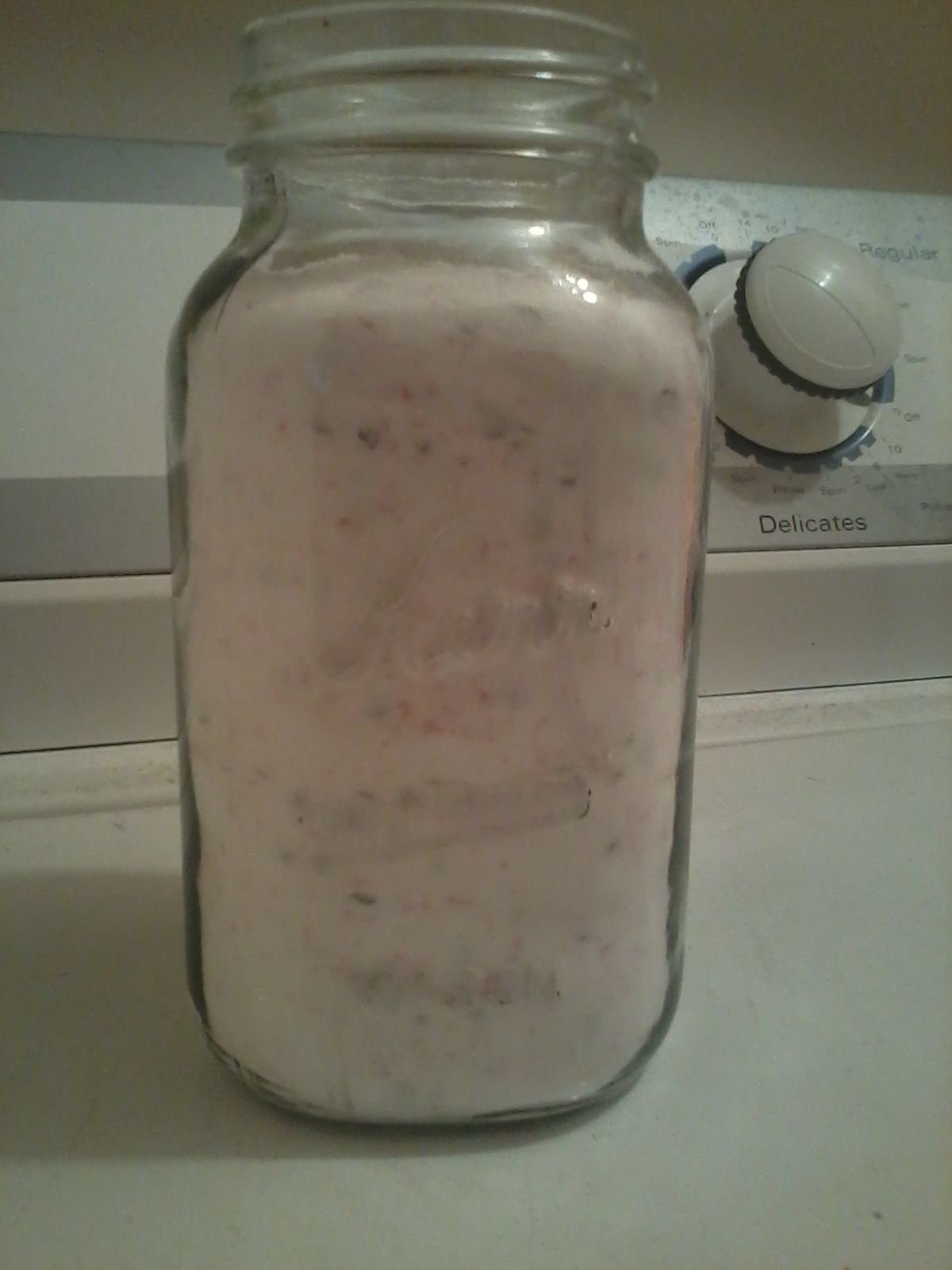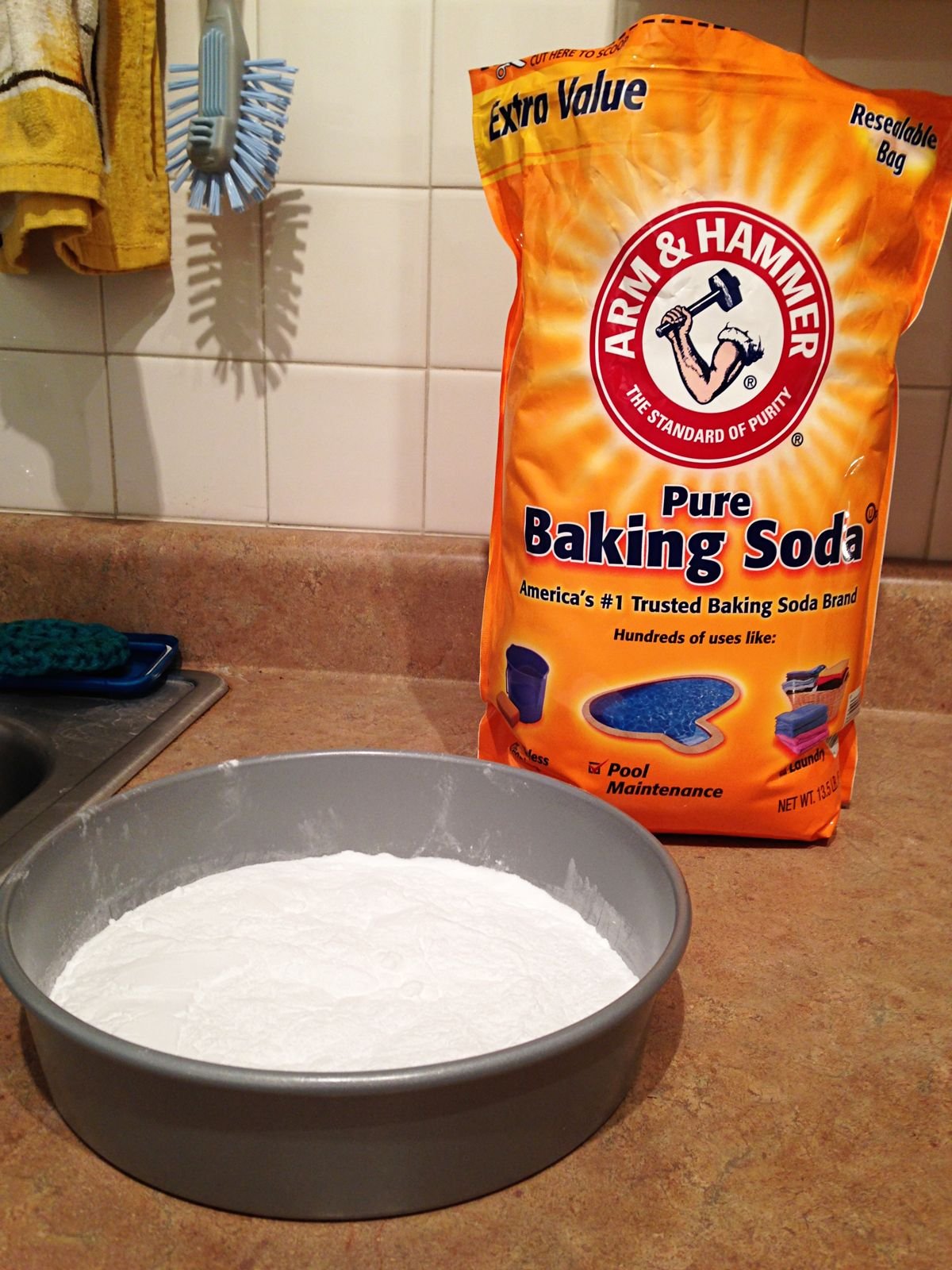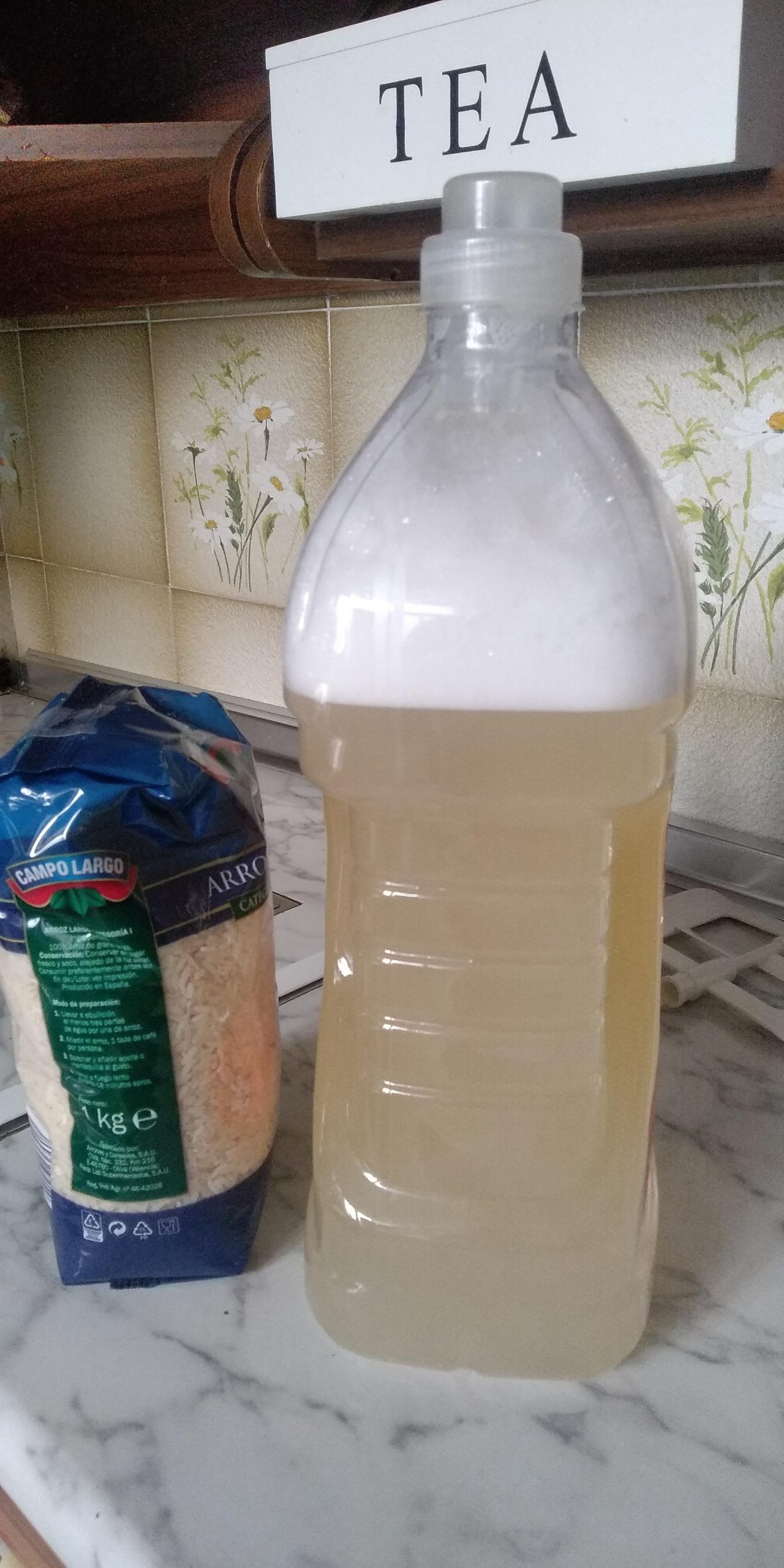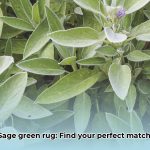Calling all home enthusiasts and sustainability advocates! Discover the wonders of Homemade Laundry Soap with Baking Soda: A Sustainable and Affordable Solution. Baking soda, a magical ingredient with remarkable cleaning powers, transforms into an effective laundry soap that not only cleanses your clothes but also cares for your wallet and the environment. Join us on a journey of eco-friendly laundry practices that will revolutionize your cleaning routine.
Key Takeaways:
- Baking soda is a powerful cleaning agent suitable for making effective homemade laundry soap.
- Baking soda effectively removes dirt and stains while deodorizing laundry, keeping it fresh.
- Homemade laundry soap is budget-friendly, reducing household expenses.
- It eliminates harsh chemicals, making it eco-friendly and safe for your family and the environment.
Homemade Laundry Soap with Baking Soda

Gone are the days of expensive and chemical-laden laundry detergents! Baking soda, a natural and affordable household staple, empowers you to craft your own homemade laundry soap with baking soda. Join me as we explore this cost-effective and eco-friendly solution to keep your clothes sparkling clean.
Benefits of Homemade Laundry Soap with Baking Soda:
- Budget-Friendly: DIY laundry soap slashes costs compared to commercial detergents.
- Earth-Conscious: Embrace sustainability by using natural ingredients, reducing your environmental impact.
- Gentle on Skin: Baking soda’s hypoallergenic nature soothes sensitive skin.
- Versatile Performer: Tackle regular and delicate washes with confidence using this all-purpose solution.
Materials:
- 1 cup baking soda
- 1 cup grated bar soap (Castile or Fels-Naptha recommended)
- 1 cup powdered Borax
- 1/2 cup washing soda (sodium carbonate)
- 10-15 drops essential oil (optional)
Instructions:
- Combine Dry Ingredients: Whisk together baking soda, grated soap, Borax, and washing soda in a large bowl.
- Add Essential Oil (Optional): Infuse a fresh scent by stirring in essential oil drops.
- Grind: Pulverize the mixture in a blender or food processor for a fine consistency.
- Store: Transfer the laundry soap powder into an airtight container.
Usage:
- For regular loads, use 1/4 to 1/2 cup per wash.
- Adjust the amount based on load size and water hardness.
Tips:
- Use distilled water to prevent scale buildup.
- Add hydrogen peroxide for enhanced stain removal.
- Avoid using on delicate fabrics like silk or wool.
Embrace the Power of Baking Soda
With this homemade laundry soap, you’ll not only save money but also contribute to a greener, healthier home. Let baking soda work its magic, transforming your laundry routine into an eco-conscious and cost-effective endeavor.
Love making your own homemade laundry products? Head over to our homemade laundry soap recipe liquid page for an easy-to- follow detailed guide. Furthermore, if castile soap is what you are after, we have a homemade laundry soap with castile soap article that can help! Not only that, we even have a homemade liquid laundry detergent 5-gallon bucket for those who are enthusiastic about laundry products.
Tips for using homemade laundry soap with baking soda
Hey there, laundry enthusiasts!
If you’re looking for ways to make your laundry routine more eco-friendly and budget-savvy, homemade laundry soap with baking soda is a game-changer. Here are some tips to help you get started:
-
Start with the right ingredients: Baking soda is your MVP for softening and removing stains. Combine it with washing soda for dirt-busting power, sea salt for dissolving grime, and Epsom salt for fabric softening and static reduction.
-
Mix it up: Combine all your ingredients in an airtight container. For regular loads, 1/4 cup is your magic number.
-
Go easy on delicate fabrics: Homemade laundry soap is gentle, but it’s always a good idea to test it on a small area first for delicate fabrics.
-
Add some oomph with essential oils: If you want a fresh-scented laundry, add a few drops of your favorite essential oils to the mix.
-
Skip the bleach and chlorine: These harsh chemicals can damage fabrics and the environment.
Key Takeaways:
- Baking soda is a natural softener and stain remover.
- Washing soda helps remove dirt and grime.
- Sea salt aids in dissolving dirt.
- Epsom salt softens fabrics and reduces static.
- Homemade laundry soap is cost-effective and environmentally friendly.
Benefits of Using Homemade Laundry Soap with Baking Soda

Tired of spending a fortune on laundry detergent filled with harsh chemicals? It’s time to switch to homemade laundry soap with baking soda! This eco-friendly and budget-friendly solution offers a plethora of benefits that will leave your clothes sparkling clean and your wallet happy.
Key Takeaways:
- Cost-effective: Save money by making your own laundry soap with readily available ingredients.
- Eco-friendly: Reduce your environmental impact by ditching chemical-laden detergents.
- Hypoallergenic: Baking soda’s gentle nature is perfect for those with sensitive skin.
- Versatile: Suitable for both regular and delicate washes.
- Effective: Baking soda’s natural cleaning power effectively removes dirt and stains.
How to Make Homemade Laundry Soap with Baking Soda
-
Gather your ingredients:
-
1 cup baking soda
- 1 cup grated bar soap
- 1 cup powdered Borax
- 1/2 cup washing soda (sodium carbonate)
-
10-15 drops essential oil (optional)
-
Combine dry ingredients:
-
In a large bowl, whisk together the baking soda, grated bar soap, Borax, and washing soda until well combined.
-
Add essential oil (optional):
-
For a fresh scent, add 10-15 drops of your favorite essential oil and stir.
-
Grind the mixture (optional):
-
If you prefer a finer consistency, transfer the mixture to a blender or food processor and pulse until it resembles a powder.
-
Store in an airtight container:
-
Keep your homemade laundry soap in a sealed container for future use.
-
Use as directed:
-
Add 1/4 to 1/2 cup of laundry soap to your washing machine for each load.
Tips:
- Use distilled water to prevent scale buildup in your washing machine.
- Add hydrogen peroxide for extra stain-fighting power.
- Avoid using this laundry soap on delicate fabrics like silk or wool.
Most Relevant URL Source:
Comparison of Homemade Laundry Soap with Baking Soda to Store-Bought Brands
Baking soda, a household staple, can be a game-changer in your laundry routine. Compared to store-bought detergents, homemade laundry soap with baking soda offers several advantages worth considering:
Pros of Homemade Laundry Soap with Baking Soda:
-
Cost-conscious: Ingredients are readily available at most grocery stores, keeping costs minimal.
-
Eco-friendly: Baking soda is a natural ingredient, reducing the environmental impact compared to chemical-laden store-bought detergents.
-
Versatile performer: Suitable for most fabrics and water temperatures, making it a convenient choice for your laundry needs.
-
Hypoallergenic: Baking soda’s gentle nature makes it ideal for sensitive skin, minimizing the risk of irritation.
Cons of Homemade Laundry Soap with Baking Soda:
-
Less effective on tough stains: While effective in most cases, baking soda may not be as potent as commercial detergents in removing stubborn stains.
-
May not dissolve completely: Improper mixing could result in residue in the washing machine or on clothes.
Pros of Store-Bought Laundry Detergents:
-
Targeted formulas: Specific detergents designed for different fabric types and stain removal needs.
-
Convenience: Pre-measured and ready to use, reducing the time and effort involved in laundry.
-
Stronger cleaning power: Formulated with surfactants and enzymes that enhance stain-lifting capabilities.
Cons of Store-Bought Laundry Detergents:
-
Costly: Commercial detergents can be significantly more expensive than homemade options.
-
Environmental concerns: Some detergents contain harsh chemicals and non-biodegradable ingredients, posing potential risks to the environment.
-
Irritating to skin: Certain detergents may contain fragrances or dyes that can cause irritation or allergic reactions.
Key Takeaways:
- Homemade laundry soap with baking soda is a budget-friendly and eco-conscious alternative to store-bought detergents.
- While effective for everyday laundry, it may not be as efficient on tough stains as commercial products.
- Store-bought detergents offer targeted solutions and convenience but come at a higher cost and may raise environmental concerns.
- Consider your laundry needs, budget, and environmental preferences when choosing between homemade and store-bought detergents.
Most Relevant URL Source:
The Benefits and Drawbacks of Homemade Versus Store-Bought Laundry Detergent
FAQ
Q1: What are the benefits of using baking soda in homemade laundry soap?
A1: Baking soda is a natural cleaning agent that can help to remove dirt and stains. It is also a deodorizer, which can help to keep laundry smelling fresh. Additionally, baking soda is a cost-effective alternative to commercial laundry detergents and is free of harsh chemicals, making it a more environmentally friendly option.
Q2: What other ingredients are needed to make homemade laundry soap with baking soda?
A2: In addition to baking soda, other ingredients commonly used in homemade laundry soap include washing soda, sea salt, and Epsom salt. Washing soda helps to remove dirt and grime, sea salt helps to dissolve dirt, and Epsom salt softens fabrics and reduces static.
Q3: How do I use homemade laundry soap with baking soda?
A3: To use homemade laundry soap with baking soda, simply add 1/4 cup of the soap to your washing machine for a regular load of laundry. You can also add essential oils to the soap for fragrance.
Q4: Is homemade laundry soap with baking soda safe for all fabrics?
A4: Homemade laundry soap with baking soda is safe for most fabrics, but it is always best to test it on a small area first, especially for delicate fabrics. Avoid using bleach or chlorine with homemade laundry soap, as this can damage fabrics.
Q5: How can I make my own washing soda for homemade laundry soap?
A5: To make your own washing soda for homemade laundry soap, spread baking soda on a cookie sheet and heat it in the oven at 400°F for 1 hour. Allow the washing soda to cool completely before storing it in an airtight container.
- Upgrade Your Table Setting: Best Salad Forks 2025 - June 26, 2025
- Sage Green Throw Pillows: Transform Your Home Decor - June 26, 2025
- Find the Perfect Sage Green Rug: A Buyer’s Guide - June 26, 2025










